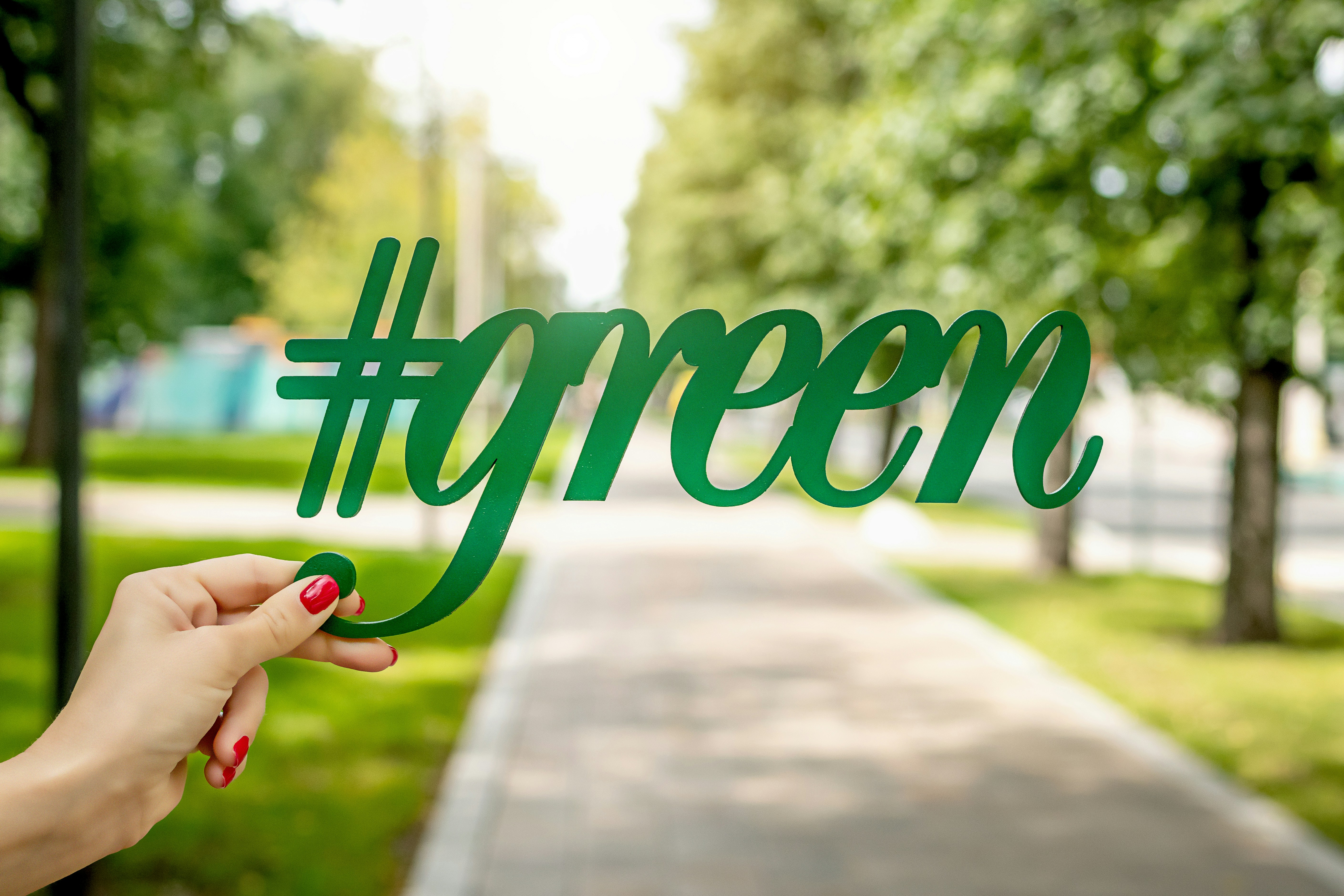Harness Augmented Reality & Green Marketing for SEO Success
As we venture into a future where sustainability and innovation intersect, harnessing the power of augmented reality (AR) can significantly elevate your SEO and digital marketing strategies. By integrating green marketing practices, businesses can not only amplify their digital footprint but also align with a growing consumer demand for responsible and ethical practices. In this guide, we will explore how AR and green marketing intersect to enhance SEO success, sharing insights on best practices, implementation strategies, and relevant case studies that exemplify this transformative approach.
Understanding the Intersection of AR and Green Marketing
The realms of augmented reality and green marketing may seem distinct, yet they converge beautifully when aimed at boosting digital presence. AR allows users to interact with digital content in real-world settings, offering an engaging experience that a static webpage simply can't provide. Combine this with green marketing, which focuses on promoting eco-friendly products and sustainable practices, and you create a resonance with your audience that extends far beyond traditional advertising.
The Rise of Green Consumerism
Consumers today are more educated and environmentally conscious than ever. According to a 2023 report from the Harvard Business Review, over 70% of consumers are willing to pay a premium for sustainable products. This shift in consumer behavior is a golden opportunity for digital marketers to embrace and enhance their SEO strategies. By incorporating eco-friendly practices into your brand narrative and utilizing AR, you can create compelling, authentic content that resonates with your audience and improves your search engine rankings.
Tip: By optimizing your website and content for keywords related to sustainability and green marketing, you position your brand favorably in search results, attracting eco-conscious consumers.
Why AR Matters in SEO
Augmented reality serves as an immersive tool capable of enhancing user experience, which is a key factor in search engine algorithms. Google prioritizes user engagement metrics, and when your audience interacts with AR experiences, they spend more time on your site, reducing bounce rates and improving SEO rankings.
Engaging Users with AR
Imagine a potential customer using their smartphone to visualize how a solar panel would look on their rooftop or experiencing a virtual tour of a sustainable manufacturing facility. These engaging experiences not only captivate users but also foster a deeper connection with your brand. Incorporating AR allows marketers to tell stories, showcase products, and impart information in dynamic formats that appeal directly to consumer senses.
Neuroscientific studies have shown that interactive content, like AR, can lead to higher retention rates and brand recall, ultimately translating into increased conversions. Thus, integrating AR into your SEO strategy is not merely about novelty; it's about establishing meaningful relationships with consumers.
Best Practices for Implementing AR in SEO Strategies
To leverage augmented reality effectively, brands must adopt a strategic approach when incorporating it into their marketing initiatives. Here are five best practices:
1. Identify Your Audience
Before implementing AR, it's crucial to understand who your target audience is and what types of experiences they value. Collect data on consumer behavior, preferences, and interests to tailor your AR content accordingly. This ensures that your efforts resonate with the right individuals.
2. Create Immersive Experiences
Develop AR experiences that provide real value to your audience. Whether it's a virtual product demonstration or a captivating storytelling journey about sustainability, the goal is to compel users to interact and share their experiences.
3. Optimize for Mobile
Since most AR experiences are accessed via mobile devices, make sure your content is optimized for mobile viewing. A seamless experience encourages user engagement, enhancing overall satisfaction and boosting their likelihood of returning.
4. Focus on SEO Optimization
Incorporate relevant keywords pertaining to AR and sustainability throughout your content. Use transaction-based keywords within your AR experiences to enhance visibility and relevancy in search engines.
5. Monitor & Analyze Performance
Regularly evaluate the performance of your AR experiences. Use analytics to track user engagement and feedback, making necessary adjustments to enhance effectiveness. Consider using tools like Google Analytics to gather insights on how AR influences user behavior and search rankings.
Case Studies: Brands Successfully Merging AR and Green Marketing
IKEA Place: A Practical Application of AR
IKEA’s AR application, IKEA Place, allows customers to visualize how furniture would fit in their homes before making a purchase. By offering an AR experience, IKEA not only improves the shopping journey but also emphasizes its commitment to sustainability by promoting eco-friendly products within the app. This approach has helped IKEA garner significant engagement, increasing both its digital footprint and search visibility.
Pepsi Max: The Augmented Reality Bus Shelter
Pepsi Max created a buzz with its augmented reality bus shelter campaign that transformed an ordinary waiting area into a visually spectacular urban experience. While this campaign didn't explicitly focus on sustainability, its unforgettable nature effectively increased Pepsi’s brand awareness and engagement, positively impacting its online presence and SEO.
Leveraging Green Marketing for Enhanced SEO
Integrating green marketing strategies can augment your digital marketing efforts, especially when combined with AR technologies. Here’s how businesses can intertwine these concepts for heightened SEO success.
Crafting a Sustainable Brand Narrative
A compelling brand narrative around sustainability enriches your SEO strategy. By creating content that highlights your sustainable practices, you build authority and trust with consumers. Consider writing blog posts exploring your eco-friendly initiatives, offering insights into your green certifications, and championing community efforts. This not only showcases your values but also improves relevancy in search inquiries involving sustainability.
Crafting sensory experiences through storytelling also provides additional layers of engagement, enhancing user experience and boosting SEO performance.
Collaborating with Eco-Friendly Influencers
Partnering with influencers who are passionate about sustainability can amplify your green marketing efforts. These partnerships can lead to guest posts or social media campaigns that increase brand exposure, draw traffic to your website, and further improve your organic search rankings. Make sure to choose influencers whose values align with yours for authenticity and relevance.
The Future of SEO: Sustainability and Immersive Technologies
As we look ahead, the interplay between augmented reality, SEO, and sustainability will continue to grow in importance. The digital landscape will increasingly value authentic, immersive experiences that foster genuine connections and brand loyalty.
Embracing Technological Innovations
The integration of technologies such as artificial intelligence (AI) and machine learning can further enhance AR applications. Predictive analytics can provide insights into consumer preferences, allowing brands to tailor experiences in real time. As these technologies evolve, staying at the forefront will be crucial for maintaining competitive SEO strategies.
Prioritizing Ethics and Responsibility
Consumer skepticism regarding advertised sustainability is rising, underscoring the importance of authenticity in marketing. Brands must ensure that their claims are backed by credible actions, reflecting a genuine commitment to sustainability. Transparent practices will enhance trust and authority, driving consumer loyalty and, subsequently, organic search rankings.
Final Thoughts: Transforming Your Digital Marketing Strategy
As businesses navigate an increasingly complex digital landscape, leveraging augmented reality and integrating sustainable practices will be critical for SEO success. By creating immersive and engaging experiences, brands can connect more deeply with consumers and build loyalty. Add to that an effective green marketing approach, and you have a powerful recipe for not just relevance, but remarkable growth.
To remain competitive in 2025 and beyond, prioritize these innovations, invest in consumer relationships, and ensure that your sustainable initiatives are firmly integrated into the core of your digital marketing strategies. This commitment will not only enhance your visibility but also foster trust and engagement in a world that increasingly values authenticity and responsibility.
The future of SEO lies at the intersection of technology, sustainability, and consumer experience—don't miss out on the opportunity to be a front-runner in this essential shift.














